You finally hear the voice broadcasted through your headphones over your usual VALORANT music playlist. “Match found,” the robotic voice says before you load into a screen that reveals where in the world (real or fictional) you’ve been sent to. Maybe a groan erupts from your five-stack or cheers from your duo.
VALORANT’s initial beta was released with just three maps before Ascent, Icebox, Breeze, Fracture, Pearl, and Lotus were eventually added to the game. While each map offers a different feature, gimmick, or theme, some are more successful than others. Dot Esports has assessed the tactical shooter’s current inventory, comparing the maps based on balance and entertainment, to give you our list.
Here are our rankings for all nine maps in VALORANT.
9) Split
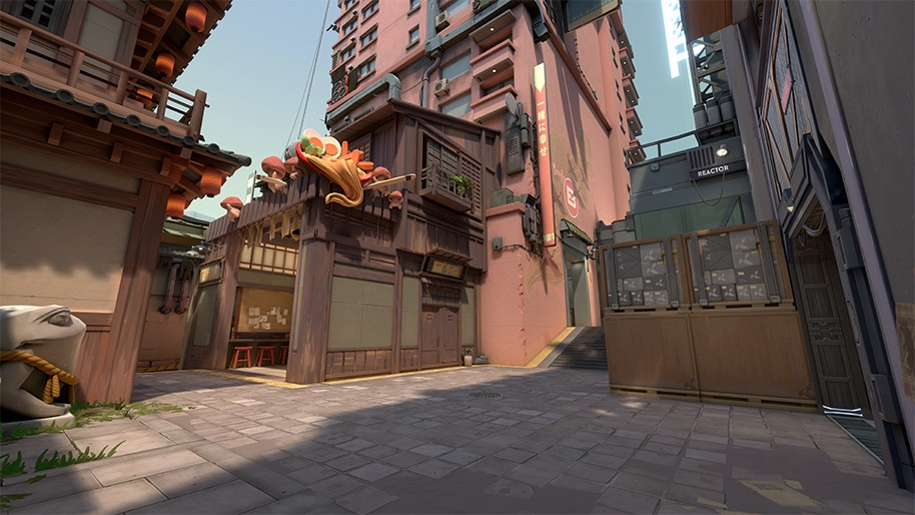
VALORANT players definitely have a love-hate relationship with Split. And it gets our last-place ranking for a few reasons.
Despite the fact Riot Games tweaked the map and adjusted barrier locations in Patch 2.01, giving attacking teams more of a fighting chance, Split was still flawed. So flawed, in fact, that the developers made the decision to remove it from the pool completely in June 2022.
Split is now back in the map pool with another rework, but the map still has issues that make it difficult to succeed on. Though with the redesign, Split is now less defender-sided—the meta on the map now focuses heavily on mid control, creating another set of problems.
It’s simply difficult to push onto either point as attackers. Defenders can set up traps, smokes, and one-ways to stall, playing safe until the attackers decide to make a move. Split’s tight corners and short sightlines are still optimal for Raze, who can use her grenades and rockets to easily kill unsuspecting enemies with little counterplay.
It still feels like Split requires a few key agents to succeed, making it hard to create innovative strategies and evolve the way the map is played. Though the focus has shifted back to mid-control being a primary objective, it feels like too many players are still pressured to lock in Sage and mindlessly wall mid on defense, round after round after round.
8) Fracture

VALORANT’s most controversial map is Fracture. Introduced in September 2021, Fracture is a nightmare for players accustomed to Riot’s traditional map design. The H-shaped map is a maze of walkways, ziplines, and audible opening and closing doors.
The defenders spawn in the middle of the map, unlike any other in the game, and have access to both sites from spawn. The attackers spawn in front of a set of ziplines, allowing them to reach the northern and southern points of the map, but not without being heard (unless you hold down your walk key, of course).
This setup offers an interesting dynamic where the attackers can attack from two sides of the map at once, outmaneuvering the defenders. Rotating quickly from one site to the other is another unique factor. In both professional and ranked play, this map has proven to be attacker-sided, since defending from four different directions at once is a bit of a tall order.
While the map is certainly different and provides a unique experience for the player, it doesn’t mean it’s fun. Bordering on gimmicky, Fracture is a confusing, clunky, and unbalanced maze. While professional players have become accustomed to the unorthodox map, many teams even choosing it to maximize their chaotic strategies, this map is still hated in ranked play.
7) Icebox
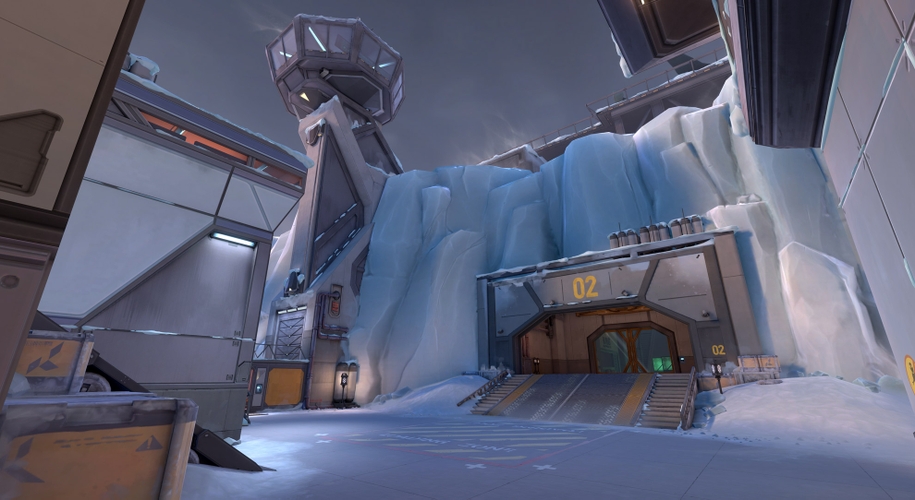
Icebox has received some mixed reviews since its release and has also been changed several times.
The snowy tundra has tight angles, choke points, long rotations, and verticality, making it a tough map for rusty or inexperienced players.
Jett, Raze, and Omen mains may enjoy the verticality of this map, which helps them get to various unique vantage points. Players who enjoy skirmishing and Deathmatch might like more action that tests their shot. But some tactical maneuvers and strategies are lost on this map, which seems to favor precise gunplay and constant awareness instead.
Patch 1.14 solved a lot of Icebox’s problems, reducing the height of several vantage points to simplify A site. Icebox was still flawed, though, and got another major rework in Patch 4.04. This rework mostly focused on the B site, since the A site became known as the overwhelmingly favorable site to initiate onto. Since these changes, Icebox has been the most balanced it ever has been, yet it is next in line to be taken out of the competitive rotation.
Another big critique of Icebox, and the main reason why it ranks lower on our list, is because the color scheme of this map is just so different from any other in the game. Players have reported having to modify their crosshairs specifically for use on this map because the blue sky and white snow make it feel like you’re being constantly flashbanged. Turn your brightness down for this one.
6) Lotus
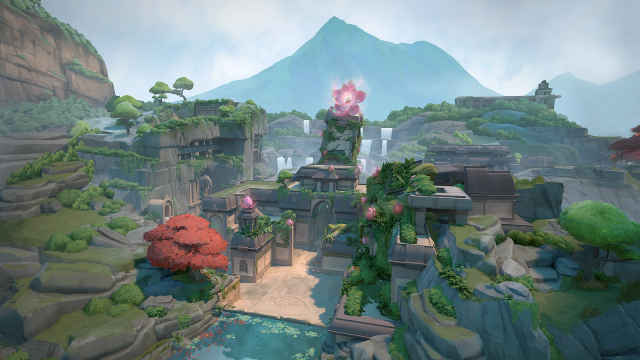
Lotus is a map that received a mixed reception upon its release but was quickly adopted into the professional circuit. The map is one of only two in the game with three possible sites to plant the Spike on, instead of the standard two. Though the attacker and defender sides of this map are clearly defined, unlike Fracture, it still feels like a maze. There are multiple entry points to each site and plenty of ways to get flanked due to how narrow the map is from north to south.
Deathmatch on this map is a bit of a nightmare because it’s hard to know where any enemies might be coming from. The unique site entries, however, make the map a creative display of design combined with clear and beautiful lore elements.
Lotus’ main gimmick is its giant stone revolving doors, which are, to put it mildly, a total pain in the butt. The doors open very slowly, and if you want to pass through them the player must time it exactly right so your agent doesn’t get stuck on one side. You also have to manually push a button on one side of the door in order for it to open. Not to mention, how freaking LOUD these things are. The devs even had to patch the sound of the doors because they were too loud upon the map’s initial release.
5) Ascent
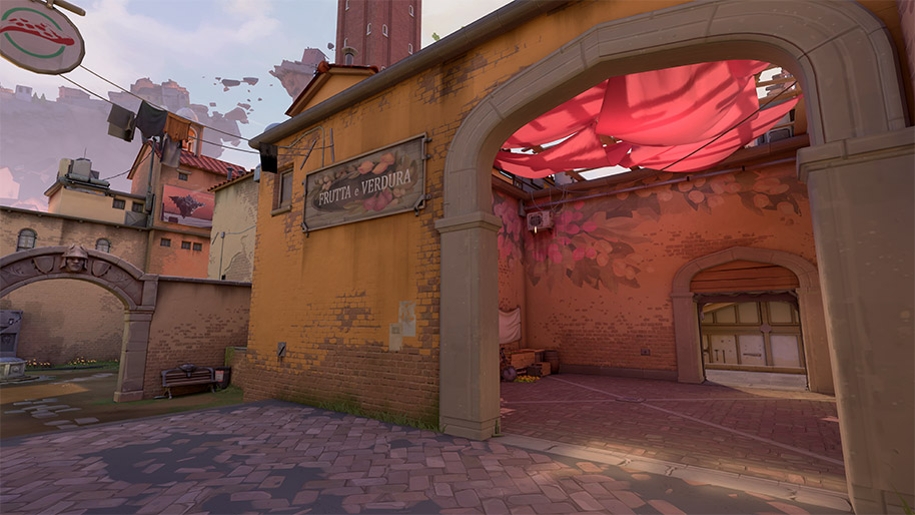
Ascent made its debut when VALORANT officially launched in June 2020, offering some variety after not being included in the closed beta. But its long sightlines and lengthy rotations leave little room for error and require plenty of communication.
For Operator lovers and Chamber aficionados, Ascent is fun because of its long sightlines. You can post up in the middle of the map and test your aim against any rotators, stragglers, or peekers. Since coordinating the right smokes with a synchronized push is often hard in solo queue, snipers can take advantage of a team’s miscues. Mobility agents can certainly have a lot of fun on this map, jumping on walls and crates to achieve new angles of attack.
The map isn’t without its flaws, though. There aren’t many ways onto each site, especially considering how many angles defenders can realistically play. All of the enemy’s possible locations can leave your head spinning. Are they at Boathouse? Hiding in Cubby? Behind the double-stack? Or simply waiting by B Tunnels? If you’re already low on numbers, it can be tough to execute anywhere on the map.
4) Breeze
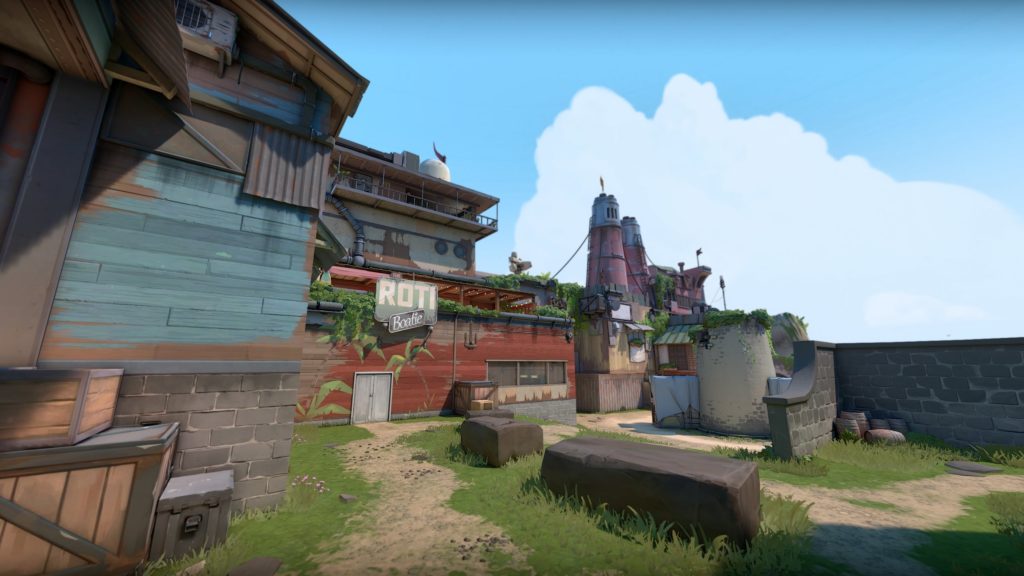
VALORANT’s tropical paradise offers plenty of variety for players, and though it started off as a hated map, it has aged gracefully with updates and slight reworks.
Breeze has large open spaces, long sightlines, multiple flank options, big doors, and loads of aesthetic value as well. The A site offers an interesting tight tunnel where players can test their skills and ego peek each other. The trap door is an interesting, albeit risky, touch where you can quickly drop into mid. The two pyramids on A site and brick features on B site provide interesting cover for defenders and attackers alike.
The map is especially fun for Yoru mains, who can use their ultimate and teleports to play mind games with opponents and get behind enemy lines. Those who like sniping and holding long sightlines will find a playground on Breeze. As the map has evolved, Viper has also become a must-pick, since she can easily eliminate Breeze’s open spaces with her wall and ultimate ability.
3) Bind
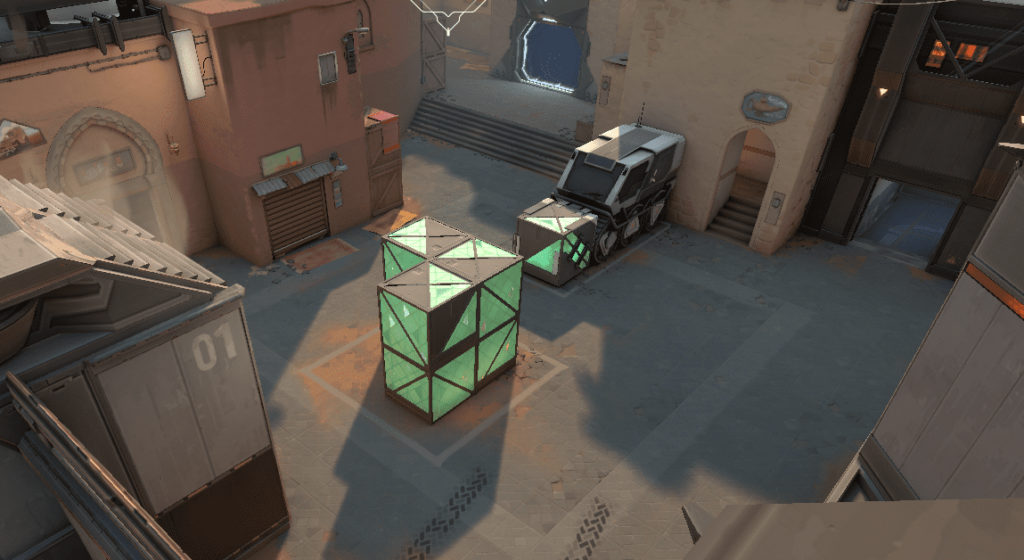
Bind is a popular map because it’s well-balanced and its feature, the teleporters, can help for last-minute rotations and major outplays, adding a surprise factor that is also readable in certain circumstances.
The desert map doesn’t have a true middle area like every other map. Instead, players have to attack or defend two points moving into each site, for a total of four. This initially seems problematic for attackers, who are forced to infiltrate a site by pushing through extremely tight lanes, but the teleporters more than compensate for that by allowing for more flexibility and spontaneity.
Teams can fake a push into one site, get a pick or two, and then immediately rotate through a teleporter. This can throw off defenders, who may be forced to gamble on a rotation. Defenders, on the other hand, have clear points they need to secure. They just have to execute it well, and if one person dies, others need to step up.
Though the map has been out of rotation for the past few months, it’s finally back with a rework in Patch 6.07.
Bind is one of the few maps in the game that is balanced and has the smallest margin of advantage for one side over the other. It’s fun, fair, and friendly to both sides.
2) Pearl

Pearl is a map with another unique design, where the entire playable area seems to exist inside a globe under the ocean. Overall, this map is one of the game’s best, with solid variety on both sites where a multitude of agents can shine in various roles. There are a few tight corridors and even a crawl space that can only be passed through if the player crouches down with their agent. There is also a nice place to set up shop with an Operator or Tour de Force on the B site.
One of the trickiest things about playing on Pearl is the access the attackers have to easily go through mid if no one is keeping tabs on it. Even setting up on defense and turning away from watching mid for one second could get you in trouble. It’s easy for a Reyna, Cypher, or Yoru to sneak their way through mid and come at the site from a different direction.
This map requires a ton of awareness and communication, which also makes it one of the most fun maps to watch at a professional level. Though watching mid can be tricky, it really tests your skill and allows for the best of the best to show off their talent.
Pearl is a masterpiece of a map, and also one that has been loved since it was introduced.
1) Haven

Haven is the one map that doesn’t clearly favor defenders over attackers. Players have three options to plant the spike—A, B, or C site—and can easily rotate back through their own spawn without enemies hearing them. While defenders are forced to spread their numbers thin across the map, they can also quickly rotate from one site to another.
There are also multiple ways to get on to any site, leaving room for varying strategies. This makes getting B site control tactically important for both teams. If attackers can control the middle site of the map, they can then pick off stragglers coming from A and C since they likely won’t be grouped together. If defenders can maintain B control, then they can easily rotate to either site or potentially catch enemies when they’re rotating, securing the middle of the map as a “home base.”
Haven includes a little bit of everything: tight chokepoints, long sightlines, and skirmish potential. A large variety of agents can have fun on this map. Sova can nail enemies through a maze of walls with his ultimate, Jett and Raze can hop onto crates and boxes for great vantage points, and Sentinels can set up their defenses to throw off an enemy push.
The name of the game for one of VALORANT’s classic maps is balance. And it works to perfection.


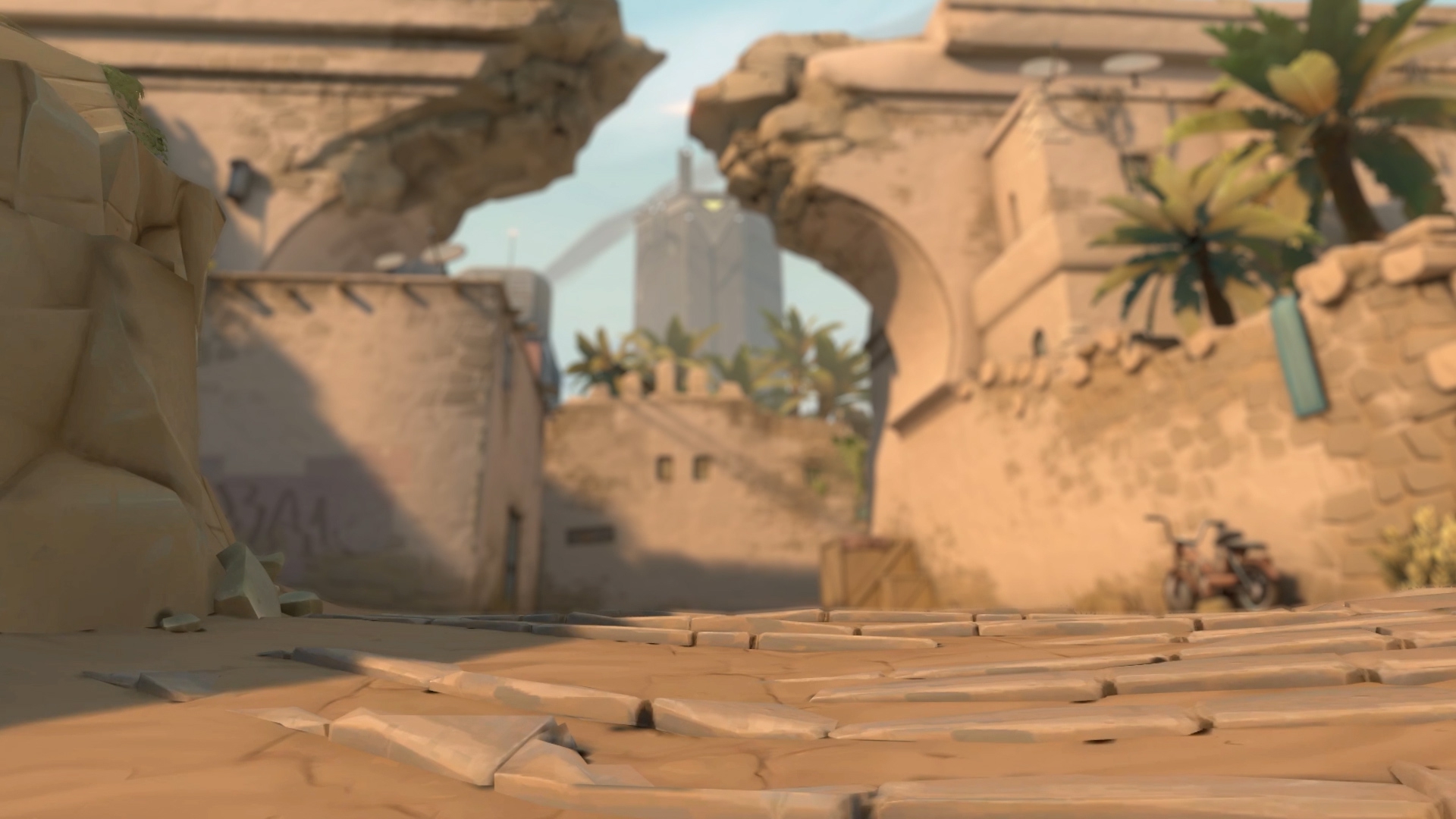

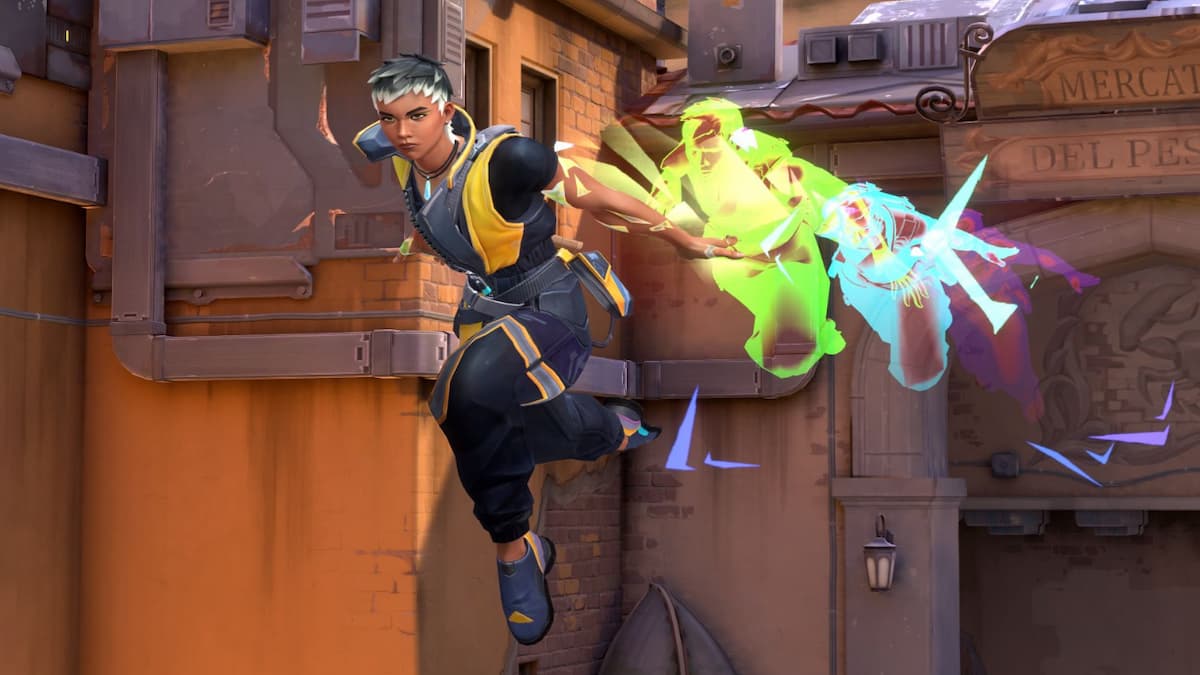
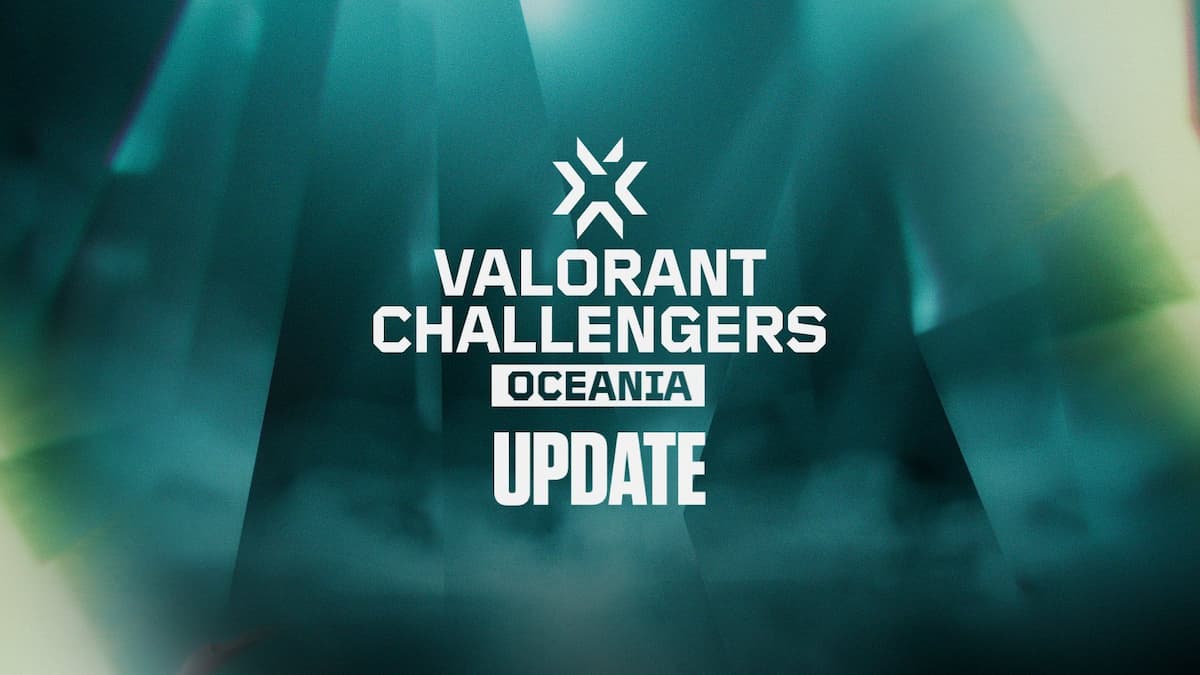
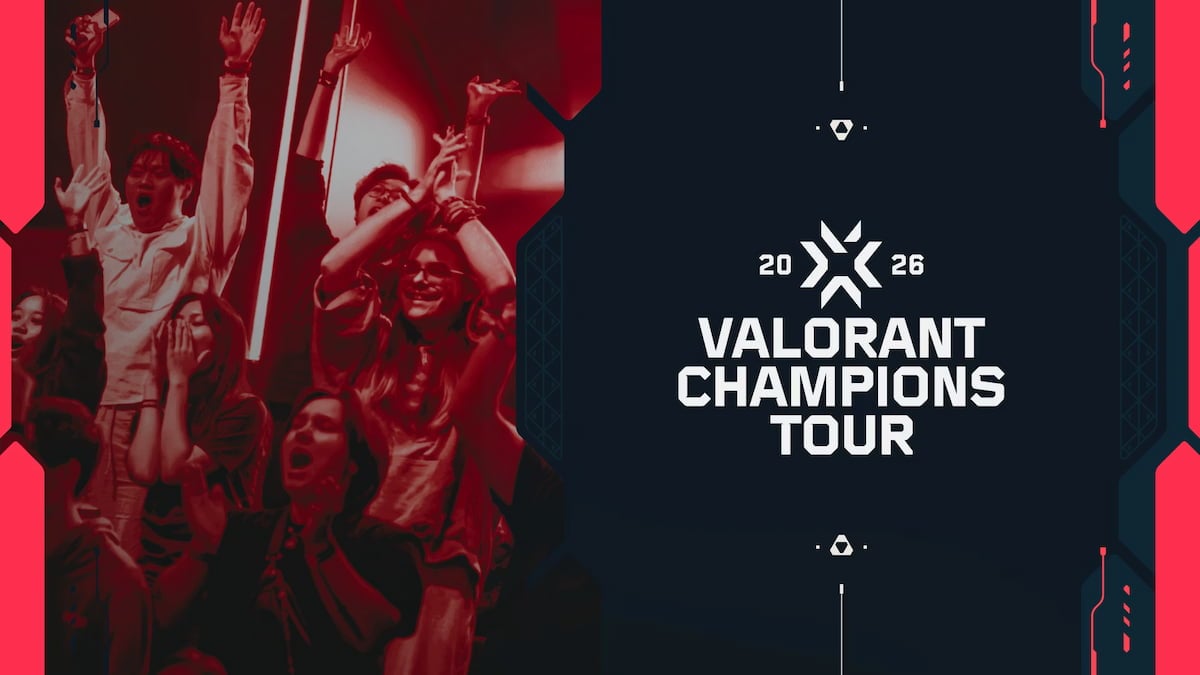
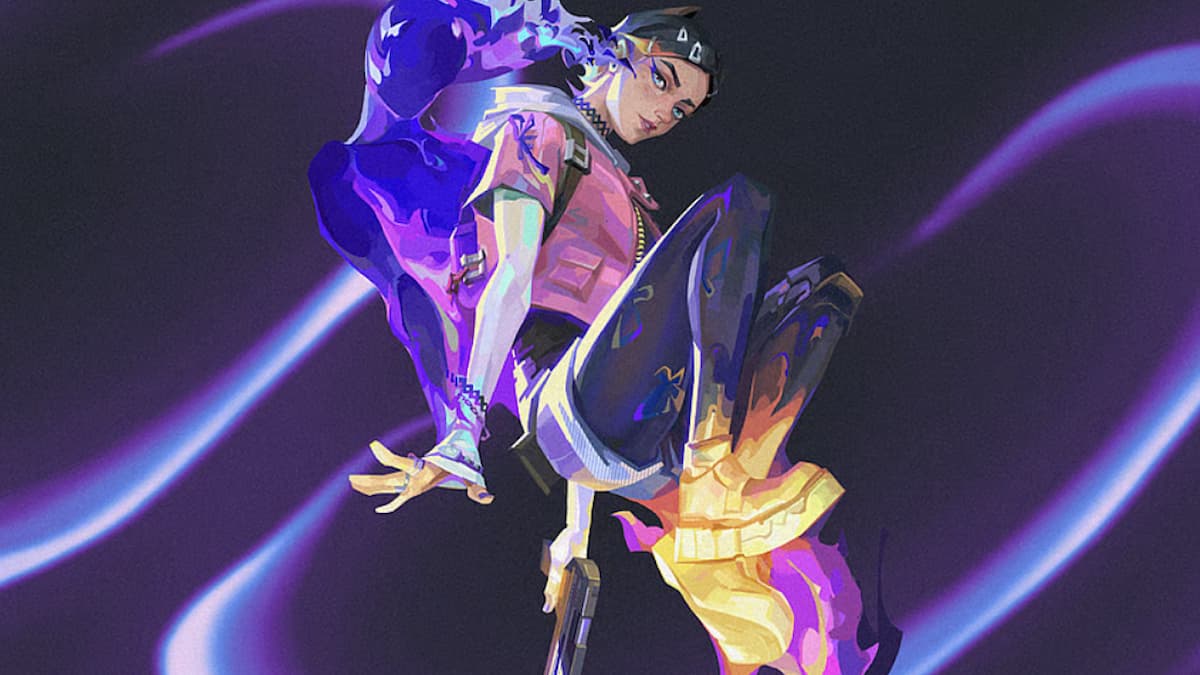
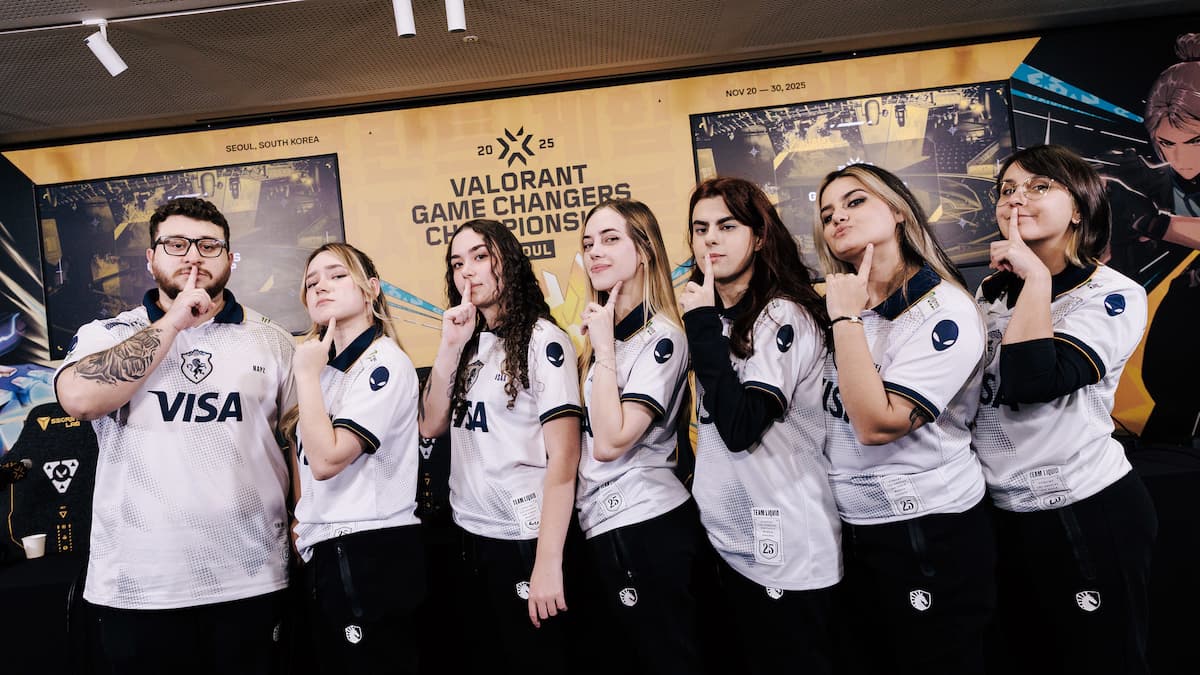
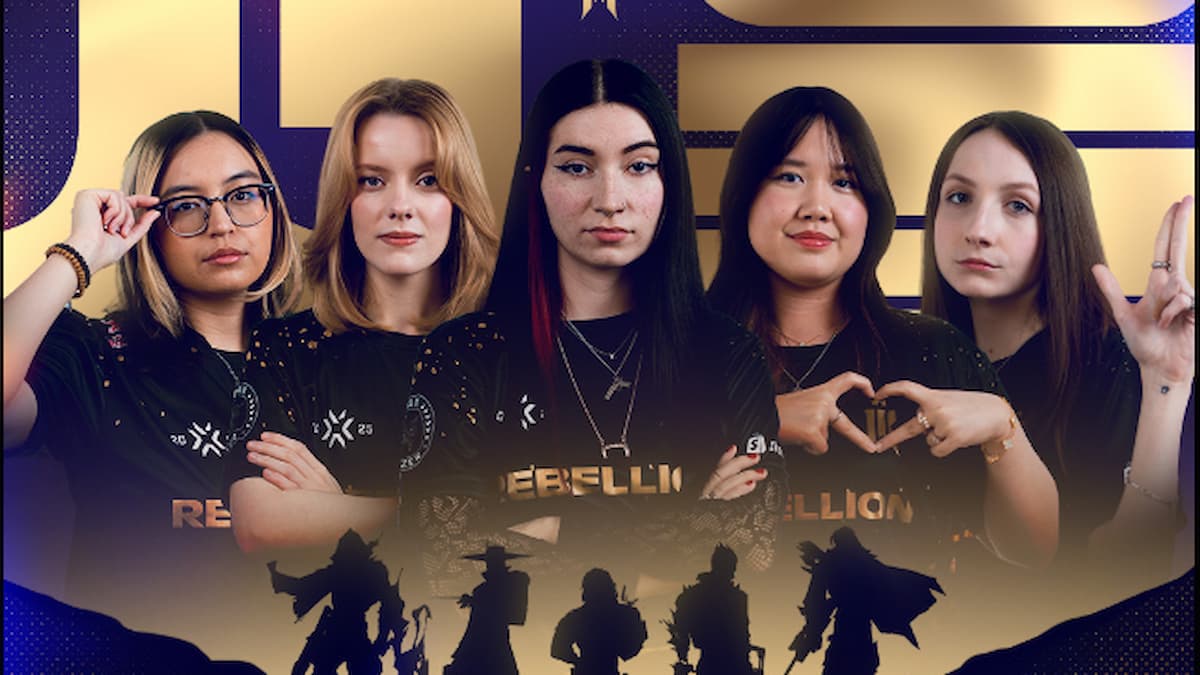

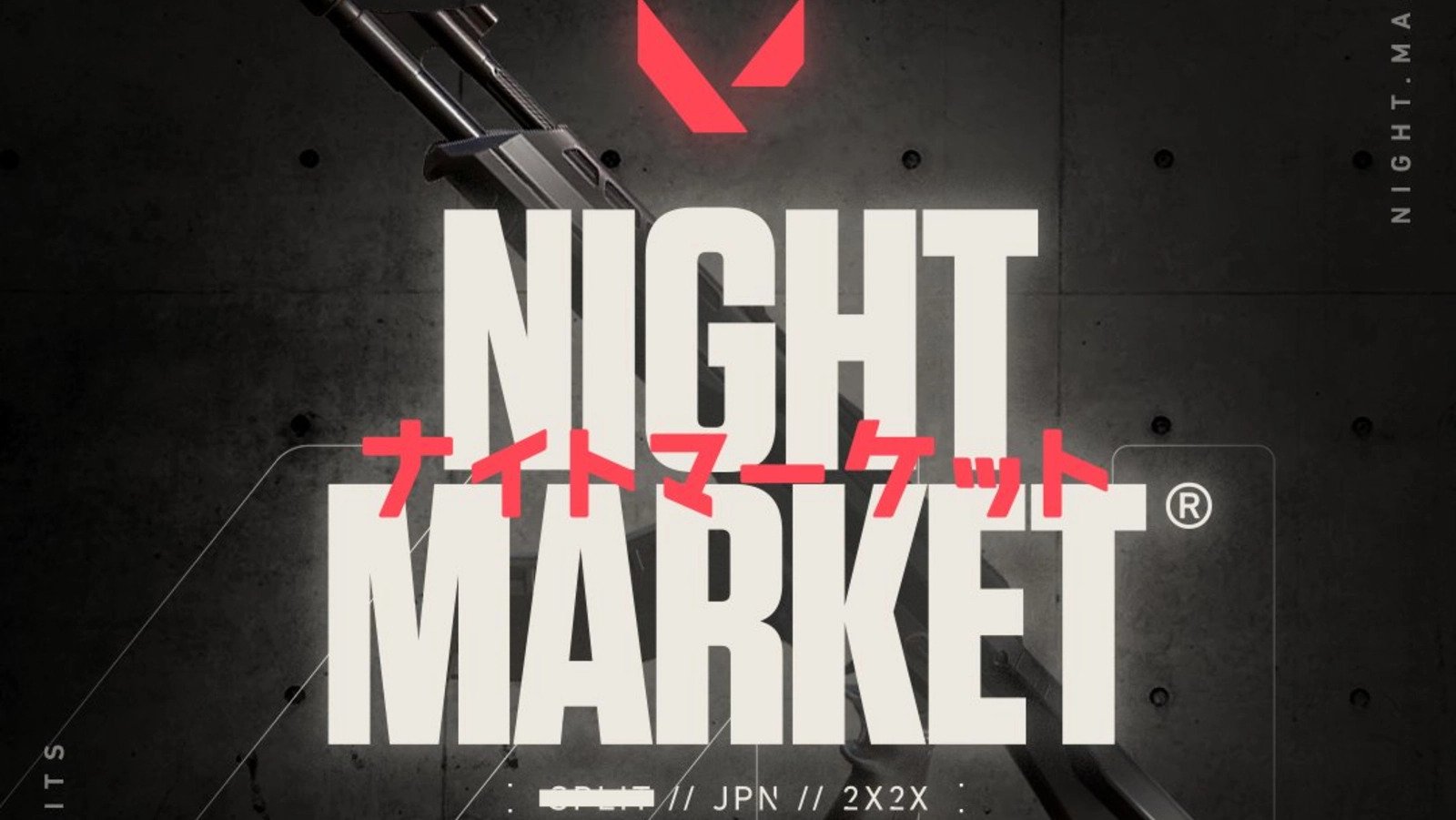

Published: Apr 19, 2023 08:40 am